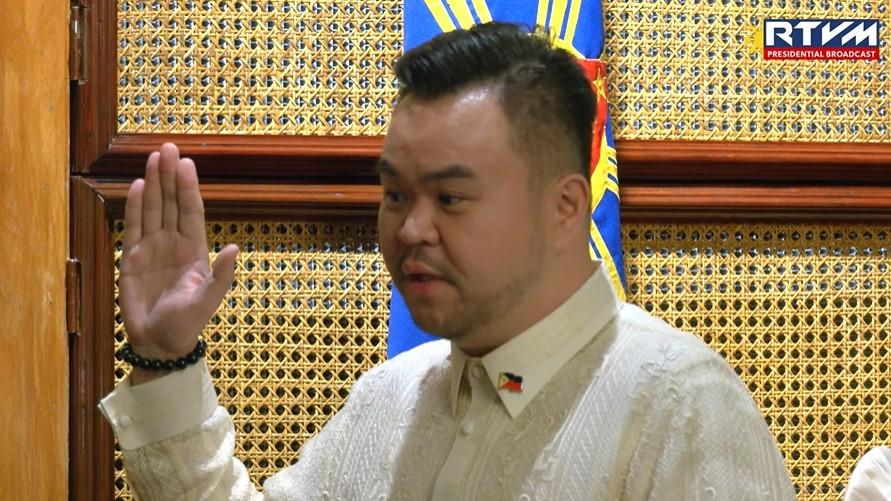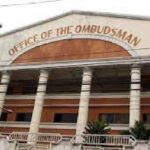Tech billionaire Maynard Ngu no longer serves as special envoy to China for trade, investments, and tourism, Malacañang said.
“As of August 2025, not anymore,” a Palace Press Officer said in a briefing when asked if Ngu still holds the special envoy position amid his alleged links to the flood control corruption scandal.
The officer said Ngu’s term had already expired. However, she did not mention Ngu’s replacement in the post.
Speaking at a Senate blue ribbon committee hearing last September, former Department of Public Works and Highways (DPWH) Undersecretary Roberto Bernardo revealed details about government projects.
Bernardo said in his affidavit that he funneled through Ngu 20% or P160 million of about P800 million of inserted projects for Valenzuela and Marinduque in the General Appropriations Act. The P160 million, Bernardo said, was “meant for Senator Francis ‘Chiz’ Escudero.”
Ngu is the chief executive officer of Cosmic Technologies, the company behind popular local cellphone brand Cherry Mobile.
Days after he was tagged by Bernardo, Ngu resigned from Gokongwei-led property venture Altus Property Ventures Inc. (APVI).
In March 2023, President Ferdinand Marcos Jr. appointed him as his special envoy.
Malacañang
Malacañang Palace is the official residence and principal workplace of the President of the Philippines, located in Manila. Originally built in 1750 as a private summer home for a Spanish aristocrat, it was later seized by the Spanish colonial government and became the official residence of the Governor-General. After Philippine independence, it was repurposed as the presidential palace.
China
China is one of the world’s oldest continuous civilizations, with a recorded history spanning over four millennia marked by successive dynasties, imperial rule, and profound philosophical contributions like Confucianism. In the modern era, it transformed into a major global power following the 20th-century communist revolution and subsequent economic reforms. Today, it is renowned for its vast landscapes, ancient landmarks such as the Great Wall and the Forbidden City, and a deeply influential cultural heritage.
Department of Public Works and Highways (DPWH)
The Department of Public Works and Highways (DPWH) is the primary engineering and construction arm of the Philippine government, responsible for the planning, design, and maintenance of national infrastructure, including highways, bridges, and flood control systems. It was formally established in 1868 during the Spanish colonial period and has evolved through various reorganizations, most notably after Philippine independence, to become the central agency for the country’s public works. Its mission is focused on providing and managing quality infrastructure facilities and services to support national development.
Valenzuela
Valenzuela is a city in Metro Manila, Philippines, named after Pío Valenzuela, a physician and a member of the Katipunan during the Philippine Revolution against Spanish rule. Historically an agricultural area, it has transformed into a major industrial hub, hosting numerous factories and businesses. The city celebrates its heritage with events like the Valenzuela Festival, honoring its revolutionary history and cultural identity.
Marinduque
Marinduque is an island province in the Philippines known as the country’s “Heart of the Philippines” due to its geographical shape. It is most famous for its annual Moriones Festival, a colorful Holy Week re-enactment of the story of the Roman soldier Longinus. Historically, the island was a site of significant resistance during the Philippine-American War, including the 1900 Battle of Pulang Lupa.
General Appropriations Act
The General Appropriations Act is not a physical place or cultural site, but a legislative bill passed by the United States Congress. It is the primary piece of legislation that provides funding for the operations of the federal government for a fiscal year, authorizing the expenditure of public money for various programs and agencies. Its history is rooted in the constitutional requirement that all government spending must be approved by law, making it a fundamental and recurring event in the U.S. congressional calendar.
Cosmic Technologies
Based on the provided name, “Cosmic Technologies” does not refer to a specific, widely recognized historical place or cultural site. It appears to be a modern name, likely for a company or organization focused on advanced technology, aerospace, or related fields. Without a specific context, it is not possible to provide a historical summary.
Cherry Mobile
“Cherry Mobile” is not a place or cultural site, but a Filipino consumer electronics company, primarily known for manufacturing mobile phones and gadgets. It was founded in 2009 and gained popularity by offering affordable smartphones and telecommunications devices tailored for the Philippine market.






